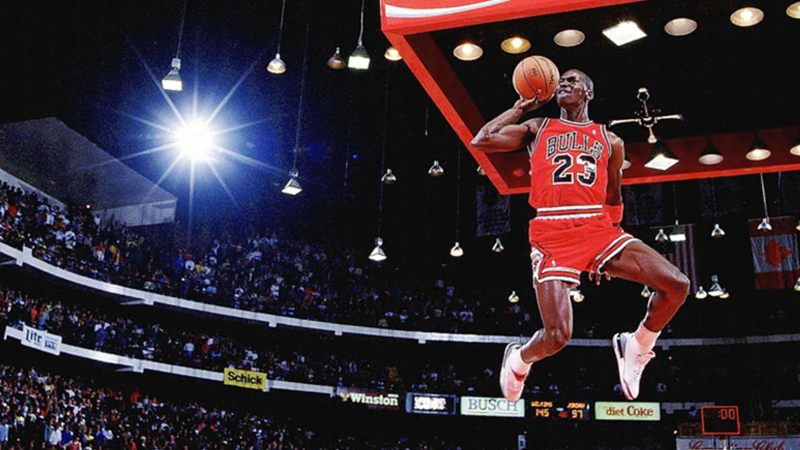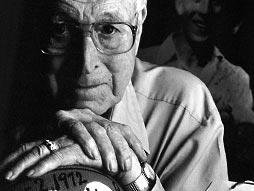Fostering a Positive Mindset in Young Athletes: A Guide for Parents
Discover effective strategies for parents to help cultivate a positive mindset in young athletes, boosting their confidence and performance in sports.
Parents and coaches play a crucial role in developing a positive mindset in youth athletes. This is essential for both personal growth and sports success.
– Coach Johnny

Support the JK Tribe with a Johnny’s Kidz, The Game Belongs to Them Coffee Mug

Support the JK Tribe with a Johnny’s Kidz, The Game Belongs to Them Hoodie
Introduction: The Role of Mindset in Youth Sports
As a parent or coach, witnessing your young athlete’s journey in sports is not just exhilarating; it’s deeply fulfilling.
While the physical benefits of sports are widely acknowledged, the mental and emotional growth that sports foster is equally profound.
One of the most rewarding experiences is seeing your young athlete develop a positive mindset, a gift that significantly influences their performance, enjoyment of the sport, and stability, both on the field and in life.

“In a fixed mindset, students believe their basic abilities, their intelligence, their talents, are just fixed traits. They have a certain amount and that’s that, and then their goal becomes to look smart all the time and never look dumb. In a growth mindset, students understand that their talents and abilities can be developed through effort, good teaching, and persistence. They don’t necessarily think everyone’s the same or anyone can be Einstein, but they believe everyone can get smarter if they work at it.”
– Carol S. Dweck, psychologist and author of “Mindset: The New Psychology of Success”
Understanding the Positive Mindset
A positive mindset in sports is not just about maintaining a cheerful disposition—it’s a transformative, growth-oriented attitude that revolutionizes how young athletes approach their sport and life.
It’s about embracing challenges, learning from setbacks, and persevering through difficulties with unwavering determination.
This mindset is a game-changer, and as parents and coaches, we have the power to help our young athletes unlock their full potential. Embracing challenges is one of the cornerstone attributes of a positive mindset.
Instead of avoiding tough situations or competitors, athletes with a growth mindset see these as opportunities to stretch their abilities and learn new skills.
They understand that each challenge is a step towards improving their personal best, and they engage these moments with vigor and determination. Learning from setbacks is another crucial aspect.
Instead of viewing mistakes or losses as failures, athletes with a positive mindset analyze these experiences to identify what went wrong and what could be improved. This reflective practice turns potential negative experiences into powerful lessons contributing to personal growth and skill enhancement.
Encouragement to Overcome Obstacles
It encourages athletes to maintain a curious and open attitude, which is vital for long-term sports development. Furthermore, perseverance is a natural extension of this mindset. Young athletes learn to see the path to mastery as a journey filled with obstacles that are not roadblocks but stepping stones.
By internalizing this perspective, they develop a robustness that helps them continue striving toward their goals despite setbacks. This tenacity not only aids their athletic performance but also prepares them for life’s various challenges outside of sports.
A positive mindset also instills deep-seated confidence in young athletes, helping them trust their abilities. It shifts their focus from fearing failure to a more empowering approach where effort and practice are seen as the primary drivers of success.
This shift is fundamental because it changes how they perceive effort. No longer is effort seen as a consequence of not being good enough but as a necessary and valued part of the journey toward achieving excellence.
By cultivating this mindset, coaches and parents are not just bystanders but the architects of their young athletes’ mental and emotional growth.
By championing these values and embodying them, parents and coaches can profoundly shape young athletes’ attitudes toward their sport and their life ambitions.
This influence is a testament to parents and coaches’ pivotal role in instilling a sense of security and positivity in athletes, empowering them to reach their full potential on and off the field.
“I’ve failed over and over and over again in my life. And that is why I succeed.”
– Michael Jordan, Renowned Professional Basketball Player and Hall of Famer

How to Foster a Positive Mindset in Young Athletes
- Emphasize the Process Over Outcomes: Focus your child’s attention on improving rather than the pressure of results. Celebrate their progress in developing skills, like mastering a new play or enhancing their teamwork, rather than fixating solely on wins or losses.
- Model Positive Behavior: Children often mimic the attitudes and behaviors of adults, particularly their parents. Demonstrate positivity in how you react to their performance and in your everyday interactions. Show strength when facing challenges, and maintain a hopeful perspective on setbacks.
- Encourage Goal Setting: Assist your child in setting realistic, achievable goals related to their sports efforts. Goal setting directs their focus and provides clear milestones to work towards, which can encourage and create a rewarding sense of achievement.
- Promote a Learning Environment: Encourage your child to see challenges as opportunities for growth. Pose questions like, “What did you learn from today’s game?” or “How can this challenge improve your skills?” This promotes critical thinking about their experiences and helps them see the value in every situation.
- Support Through Challenges: Be a pillar of support for your child when they encounter obstacles. Offer encouragement and remind them of how much they have already accomplished. Help them see setbacks as natural and essential parts of the learning process.
- Cultivate Gratitude: Encourage your child to appreciate their opportunities to play and compete. Fostering gratitude shifts their focus from deficits to privileges, nurturing a positive outlook.
- Positive Reinforcement: Use positive reinforcement to praise effort, commitment, and improvement. This could be through praising their dedication, acknowledging their persistence, or celebrating their progress, independent of results.

“Grit is living life like it’s a marathon, not a sprint.”
– Angela Duckworth, psychologist and author of “Grit: The Power of Passion and Perseverance”
Conclusion: The Power of an Inclusive Team
Adopting inclusion strategies isn’t just about ensuring every player gets a turn.
It’s about creating a dynamic team culture that actively honors and embraces diversity.
This commitment to diversity enriches team interactions by bringing varied perspectives and strengths to the forefront, fostering a deeper understanding and respect among teammates.
Such an environment improves problem-solving and decision-making and boosts creativity and innovation within the team.
Moreover, this culture of inclusion and respect can lead to significant achievements within the competitive arena.
Teams that feel supported and valued are more cohesive, motivated, and ultimately more effective in meeting their goals.
The benefits of such an inclusive approach extend beyond the playing field.
Teaching athletes valuable life lessons about respect, empathy, and collaboration that can be applied to countless other aspects of life.
Fostering an inclusive team is a holistic strategy that enhances sporting performance while contributing to all team members’ personal growth and development.
It creates a legacy of respect and unity, setting a standard for how sports should be played and how athletes interact with one another and their broader communities.
“Success is never final. Failure is never fatal. It’s courage that counts.”
– John Wooden, Legendary UCLA Basketball Coach

FAQ
References
- Books on Sports Psychology and Coaching:
- Online Courses:
- Websites and Blogs:
- Psychology Today Contains articles on sports psychology and the mental aspects of athletic performance.
- Positive Psychology: Offers resources and articles on how positive psychology can be applied in sports settings.
- Professional Organizations:
- Association for Applied Sport Psychology (AASP)—This organization features resources for professional development and access to a network of sports psychologists.
- National Alliance for Youth Sports (NAYS) – Provides information and courses on creating a positive and safe sports environment for children.
Join the JK Tribe
Coach Johnny is a youth sports coach with over 30 years of experience. He continues to coach various sports in various age groups (pre-high school) for all genders. He is also the founder of Johnny’s Kidz and the JK Tribe. If you would like to support his journey and become a Tribe member, reach out and Buy Coach A Cup of Coffee. And remember, The Game Belongs to Them!